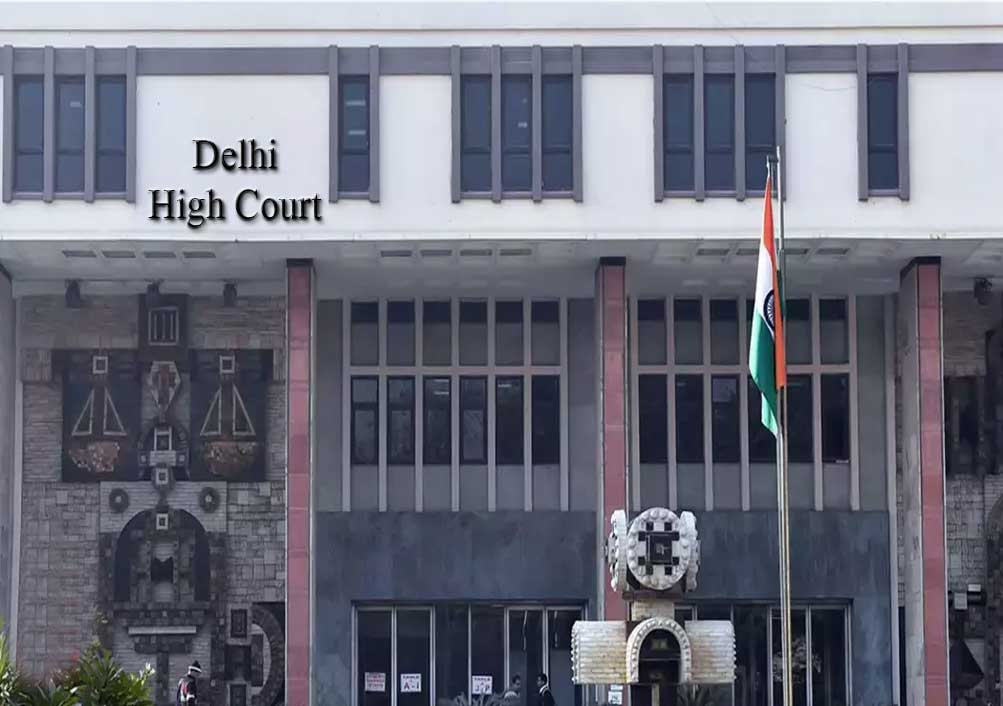Delhi HC directs release of man convicted under Negotiable Instruments Act, takes note of settlement deed and fact that complainant had received cheque amount
Justice Manoj Jain [27-03-2024]

Read Order: DEVENDER SHARMA v. STATE NCT OF DELHI & ANR [DEL HC- CRL.REV.P. 413/2024]
LE Correspondent
New Delhi, April 1, 2024: The Delhi High Court has compounded a matter under the Negotiable Instruments Act, 1881 after noting that the parties had already entered into a settlement and the cheque amount had already been realized.
The Single-Judge Bench of Justice Manoj Jain was considering a revision petition filed under Section 397 Cr.P.C. read with Sections 401 & 482 of Cr.P.C. Respondent No. 2 had filed a complaint under Section 138 of Negotiable Instruments Act (NI Act) against the petitioner which eventually resulted in conviction of the petitioner and in relation to the present complaint case, he was held guilty and convicted.
The Trial Court sentenced him to undergo simple imprisonment for a period of six months. Besides, he was also directed to pay compensation of double of the cheque amount. Since the cheque amount was Rs 45,000, he was directed to deposit compensation of Rs. 90,000. It was also ordered that in default of payment of said compensation, he would further undergo simple imprisonment for a period of three months.
Petitioner challenged the aforesaid order by filing appeal which was dismissed Impugned order had been challenged claiming that complainant did not mention about the loan amount in ITR and, therefore, statutory presumption could not have been invoked. In the interregnum, when the petitioner was in judicial custody, his son entered into settlement with the complainant-respondent no. 2.
It was noticed by the Bench that in all six complaints filed by respondent no. 2 under Section 138 NI Act against the petitioner, the cheque amount was identical i.e. Rs 45,000. It was also admitted that similar sentence had been given to the petitioner in the other five complaints/matters also and petitioner had filed separate revision petitions challenging his conviction and sentence.
The Bench noted that the Settlement deed was composite for all the six complaints and towards full and final settlement, the complainant i.e. respondent no. 2 had already been given a sum of Rs 4,72,000 which she had accepted without any pressure, force, coercion and misrepresentation. Such settlement deed bore her signatures as well. Reiterating the terms of settlement, the complainant stated that she would have no objection if matter is compounded.
“Petitioner is in custody since 25.11.2023 and since settlement has already taken place between the parties, in order to avoid any further incarceration of the petitioner, matter has been taken up today for final disposal”, the Bench said while further adding, “I have gone through the contents of the application moved under Section 147 of NI Act and also the terms and conditions as mentioned in settlement deed (Annexure P-4) and there does not seem to exist any embargo or prohibition which may persuade this Court to deny compounding.”
The complainant had already received the entire amount of Rs 4,72,000. Out of the above, Rs. 3 lakh was paid to her by way of cheque and cheque amount had already been realized and the amount has already been credited in her account. She also stated that she has received the balance amount of Rs. 1,72,000 in cash.
Thus, the Bench held, “Keeping in mind the contents of the settlement deed and the fact that both the parties have amicably settled, application under Section 147 of NI Act is allowed.”
Noting that the matter had been permitted to be compounded, the Bench held that such compounding shall have the effect of acquittal in terms of Section 320 (8) Cr.P.C. and, therefore, petitioner was directed to be released from jail forthwith if not required in any other case.
Further placing reliance on the judgements in Damodar S. Prabhu v. Sayed Babalal H [LQ/SC/2010/479] and Madhya Pradesh State Legal Services Authority Vs. Prateek Jain & Anr [LQ/SC/2014/952] and considering the fact that he is in custody since 25.11.2023, the Bench reduced the cost from 15% to 10%. Thus, while permitting the compounding, the Bench also directed the petitioner to pay 10% of the cheque amount by way of cost. Thus, in all, the petitioner was ordered to deposit a sum of Rs. 27,000 with Delhi High Court Legal Services Committee.
Sign up for our weekly newsletter to stay up to date on our product, events featured blog, special offer and all of the exciting things that take place here at Legitquest.




Add a Comment